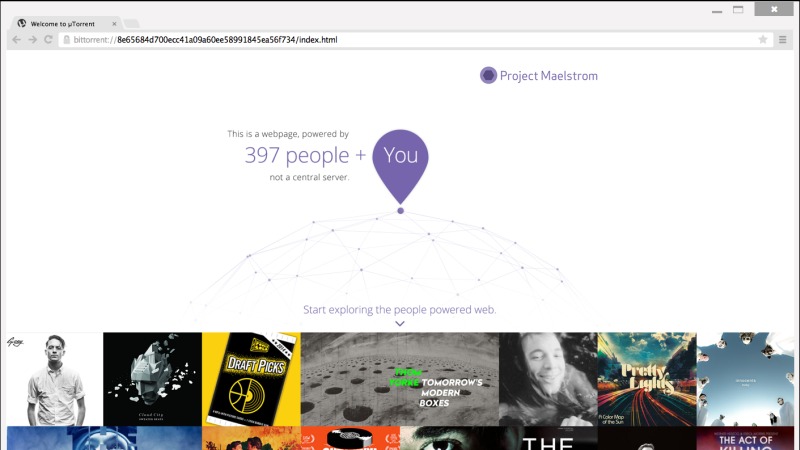
A P2P based website. IMG Source: BitTorrent.com
The world first heard about Project Maelstrom last year when BitTorrent announced an invite-only Alpha for the project. The project's aim is to deliver a browser that utilizes peer-to-peer technology to view websites rather than rely on centralized servers.
As of March 10, 2015, Maelstrom has moved out of Alpha and is available for testing as an open Beta.
Maelstrom wants to change the way the internet functions. Today, whenever users enter a website, they connect to a centralized server on which the files are stored. Maelstrom offers a different approach. Much like torrent clients, the browser uses P2P distributed torrents to retrieve web content.
Taking the peer-to-peer approach to web browsing can have various benefits. The most obvious advantage is the ability to access web content in a much faster and reliable way. Another important aspect of Maelstrom is privacy - browsing the web using peer-to-peer technology makes it less likely for your private data and browsing history to end up in the hands of corporations, government agencies, or those pesky internet marketers.
Since its start as an invite-only Alpha in December, 2014, BitTorrent has managed to grow a community of more than 10,000 developers and 3,500 publishers around Maelstrom. Their insights helped shape the current state of the browser and will continue to influence it going forward.
Along with the beta, BitTorrent released the first set of developer tools to streamline the process of creating and publishing content for users using Maelstrom. Other improvements include increased stability, auto-update support, and DHT visualization for loading torrents.
Anyone interested in participating in the beta can download Maelstrom from here. Currently, the browser is only available to Windows users, but a Mac version is in the works. The browsers is based on Chromium and also supports standard HTTP/HTTPS protocols in order to allow browsing of websites that aren't available as torrents yet.
Source: BitTorrent






